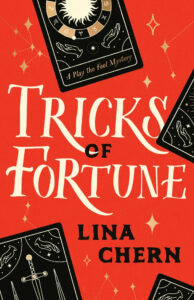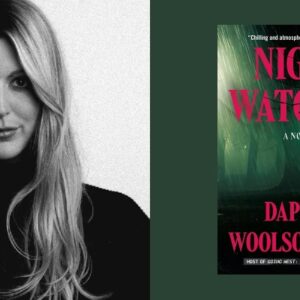The morning Joe Gliniewicz died I was picking my son Leo up early from school. He was sick and no one knew why. A nonverbal kid can’t tell you where it hurts so the only solution is to send him home.
By mid-morning the Fox Lake police lieutenant’s death was everywhere, red BREAKING NEWS banners splashed across every screen. Leo’s school, just twenty minutes away from Fox Lake, went on soft lockdown. It’s a small private school for kids with autism, staffed by kind, earnest, highly trained professionals who often seemed as baffled as I was about what was best for my son.
“Looks like it’s just you and me today, baby.” I buckled Leo into his car seat. Forget writing today, I thought, and hated myself for it. My debut novel Play the Fool was at that time a school notebook permanently open on my kitchen table, acquiring a word here, a sentence there, between meetings with behavior therapists and doctors.
News radio doled the story out in pieces over the forty-minute drive home: veteran cop shot to death…month from retirement…wife of twenty-seven years…father of four…massive manhunt.
We stopped at the bridge over Fox River and a helicopter roared by overhead. Years later, the helicopters would appear in Tricks of Fortune, the book I didn’t know I was already writing in my head. I probably saw just that one helicopter, but in my book the sky is full of them, heavy with danger and gloom.
#
I had met the Detective the year before, at my local PD’s Citizens’ Police Academy, a community outreach program that smelled of counter-PR to what we were all seeing on the news in the early 2010’s. I asked him to help fill in the blanks in my knowledge of local law enforcement, and quickly got in the habit of texting him for fact-checks for Play the Fool or, more often, for the dirt on some sanitized piece of local news. There was always a story behind the story, and he was as thrilled to share it as I was to hear it. Being privileged to my town’s Twin Peaks-like underbelly of drug traffic, gang recruitment, civic misbehavior and general eccentricity lit me up with a greedy creative joy. I was the real deal now. I was Elmore Leonard hanging with the homicide squad at 1300 Beaubien as he wrote his early Detroit novels.
So when the Lake County Major Crime Task Force tapped the Detective to join the Gliniewicz investigation, I thought I’d hit the jackpot. I had landed a front row seat to a major, high-profile homicide case that was already making national news with its compelling, tragic story: beloved police hero killed in the line of duty.
Almost immediately, the story began to change.
The investigation, after a running start, hit a wall. A home run lead—security footage of three guys matching Gliniewicz’ radio call—fizzled out. DNA analysis of the gun—bafflingly left at the crime scene—found no matches. Hundreds of leads poured in, leading nowhere.
Meanwhile, there was a candlelight vigil. A massive funeral. Fox Lake exploded with blue balloons, signs, posters of Gliniewicz on every street corner. It was impossible not to get swept up in the easy emotion of it, but what fascinated me more was the hysterical undertone to the tributes. Anti-cop sentiment was running high after the protests in Baltimore that spring, and the uproar surrounding Gliniewicz’ death felt like part backlash. He became a symbol, a character in a pre-written story. A figure on a tarot card: the Hanged Man. Sacrifice. It was at the same time alluring and repugnant.
He became a symbol, a character in a pre-written story. A figure on a tarot card: the Hanged Man. Sacrifice.“I can’t believe those three guys didn’t pan out,” I told the Detective, ten days into the investigation. I had one hour until Leo’s IEP meeting, and no business driving out to the sticks for a few minutes of news, but the story and its surrounding circus had its hooks in me.
“Everything points to that radio call being bogus,” the Detective said. “His calls were usually very detailed. I’ve got Explorers saying he would have made them do push-ups for a call like that.”
Gliniewicz had run the Fox Lake post of the Law Enforcement Explorers, a national program for teens interested in police work. By all accounts, the kids worshipped him.
“You think it could be a suicide?” The county coroner had downgraded the cause of Gliniewicz’ death from “homicide” to “undetermined.” That was when the whispering started.
The Detective didn’t answer. “What kills me is even if they rule it undetermined, he still gets his name on that wall in Washington for officers killed in the line of duty,” he said. “I have a friend on that wall. If this guy offed himself, it devalues my friend’s sacrifice.”
Sacrifice, duty, service. The Detective used these words a lot. He was such a believer it was tough not to fall in with the drama of it.
“How’s Leo doing?” he said.
The Detective rarely asked me anything—he talked and I listened, that was how it worked—but when he did, it was usually about Leo.
“He’s okay.” I shrugged. “He has gut stuff, and we just put him on this drug you have to inject.” I stared at the lake so I wouldn’t think of Leo crying and struggling while my husband and I ganged up on him for the injection.
“Holy shit, that’s got to be hard,” the Detective said. “You guys are heroes.”
“Nah.” I shrugged. “We’re just trying to survive.”
#
“You could not make this shit up,” the Detective said.
Weeks later the victimology, a procedural deep-dive into a victim’s life to scope out possible threats, was in full swing. Even early, casual glances into Gliniewicz’ personal doings had revealed a partier, a problem drinker, a vainglorious cad. A guy who bent the rules because he had “earned it.” It was disgusting and fascinating, but not completely unbelievable.
Even early, casual glances into Gliniewicz’ personal doings had revealed a partier, a problem drinker, a vainglorious cad. A guy who bent the rules because he had “earned it.”What the victimology uncovered from a deeper well of financial records and deleted communications was flat-out terrifying.
The Detective ticked off items on his fingers, each worse than the last. I marveled, despite myself, at the inescapable sense they made, as subject to the physics of cause and effect as a stone rolling downhill to shatter at the bottom. The old story melted into a new, worse one… but also a better one. I wondered queasily if I was fascinated by cops because I thought they were good people or good characters.
“You knew him,” I said. “Does any of this surprise you?”
“No way.” The detective scoffed. “The guy was a total egomaniac. He wasn’t as popular as everyone thinks. I heard that for his 30 year celebration hardly any other cops showed up. Not even his staff. It was all Explorers.”
The Explorers again. Children, who didn’t know any better. Earlier, the Detective had called Gliniewicz a “great guy.” Had he always known the truth? Was he just finding out? Or was it less binary, a sinister doublethink allowing Gliniewicz to be a monster and also exempt from blame by virtue of being a cop? Schrödinger’s good cop / bad cop? An unpleasant thought tickled the back of my mind. Later, it would snowball into the combination of fascination and disgust that would fuel Tricks of Fortune.
They knew, I thought. Everyone knew.
#
“There isn’t a single reporter in any news room in the Midwest right now,” a Milwaukee cameraman told me. “They’re all here.”
The community center was packed with TV reporters in sheath dresses, their more modestly-dressed print counterparts, and curious hangers-on like me, all waiting for the task force’s final wrap-up.
The Commander took the stage. “This investigation has concluded, with an overwhelming amount of evidence, that Gliniewicz’ death was a carefully staged suicide.”
Joe Gliniewicz—Army veteran, police elder, mentor, family man, hero—had stolen thousands of dollars from the Fox Lake post of the Law Enforcement Explorers. He used the money for vacations, gym memberships, mortgage payments and porn. When a village administrator began tracking his activities, he tried to have her killed. When that didn’t work, he took his own life and staged it to look like a murder that would secure financial benefits for his family, as well as his own status as a hero.
Months later, I asked the Commander what I had asked the Detective: how did the myth of Gliniewicz get so far afield of reality, especially when so many knew the truth?
We didn’t know how bad it was, the Detective had said. We didn’t know about the money.
“I think the public generated a lot of it,” the Commander said. “It came at a time when people needed a hero, so they seized on this guy. As for the cops, it’s an odd situation. You may not like this person, but now that something bad happens to him, it’s all forgiven and you jump on the bandwagon.”
When I asked if the public expected too much of cops, his response was quick and firm.
“Absolutely not,” he said. “We’re held to a higher standard and we should be. That’s part of what you sign up for. And from day one that’s what’s ingrained in you. From the academy, to field training, to ethical training you’re told you should be held to a higher standard. I don’t think the public should expect anything less. And standing up there revealing this was one of the hardest things I have ever had to do as a police officer.”
He paused. “It was the first time I was ever ashamed to be part of this profession.”
#
I think about survival a lot. I think about things I’ve rationalized by saying I had no choice, I did it to survive, but the line between I had to and I wanted to blurs the second you look at it. Is it foolish to set certain people above the rest of us, when we’re all caught in the same tides of survival and desire? The Commander didn’t think so, but I’m not so sure.
It was inconceivable to me that a down-and-dirty survivor like Gliniewicz would take his own life, until I understood that suicide was, for him, the ultimate act of survival.
I also understood why the Detective only ever asked me about Leo. Service, sacrifice, care—these ideas were so central to his identity, he didn’t see anything else. They’re addictive ideas, and the cravings they satisfy take many forms. For me, they held the promise of telling a good story, of doing the work I was meant to do, no matter the barriers.
Eventually I figured out how to integrate parenting and creativity into one whole life. It’s not easy or perfect, but it works. Leo is a teenager now, and communicates nonverbally by typing. He told me, after the book club at his speech / language pathology clinic read Play the Fool, that he was proud to have inspired it in some way.
Tricks of Fortune, the story based on the events I witnessed in the fall of 2015, has little to do with facts. Officer Pete bears an intentional resemblance to Gliniewicz, his real-life counterpart, but the rest—the Wife, the Son, the Detective, the Commander, the Village Manager, and even the Amateur Sleuth—I created from scratch, or as near to scratch as fiction allows. The only part that’s 100% real is our tendency to write stories about the people in our lives, and to fall so in love with those stories that they have no choice, in the end, but to break our hearts.
***


















